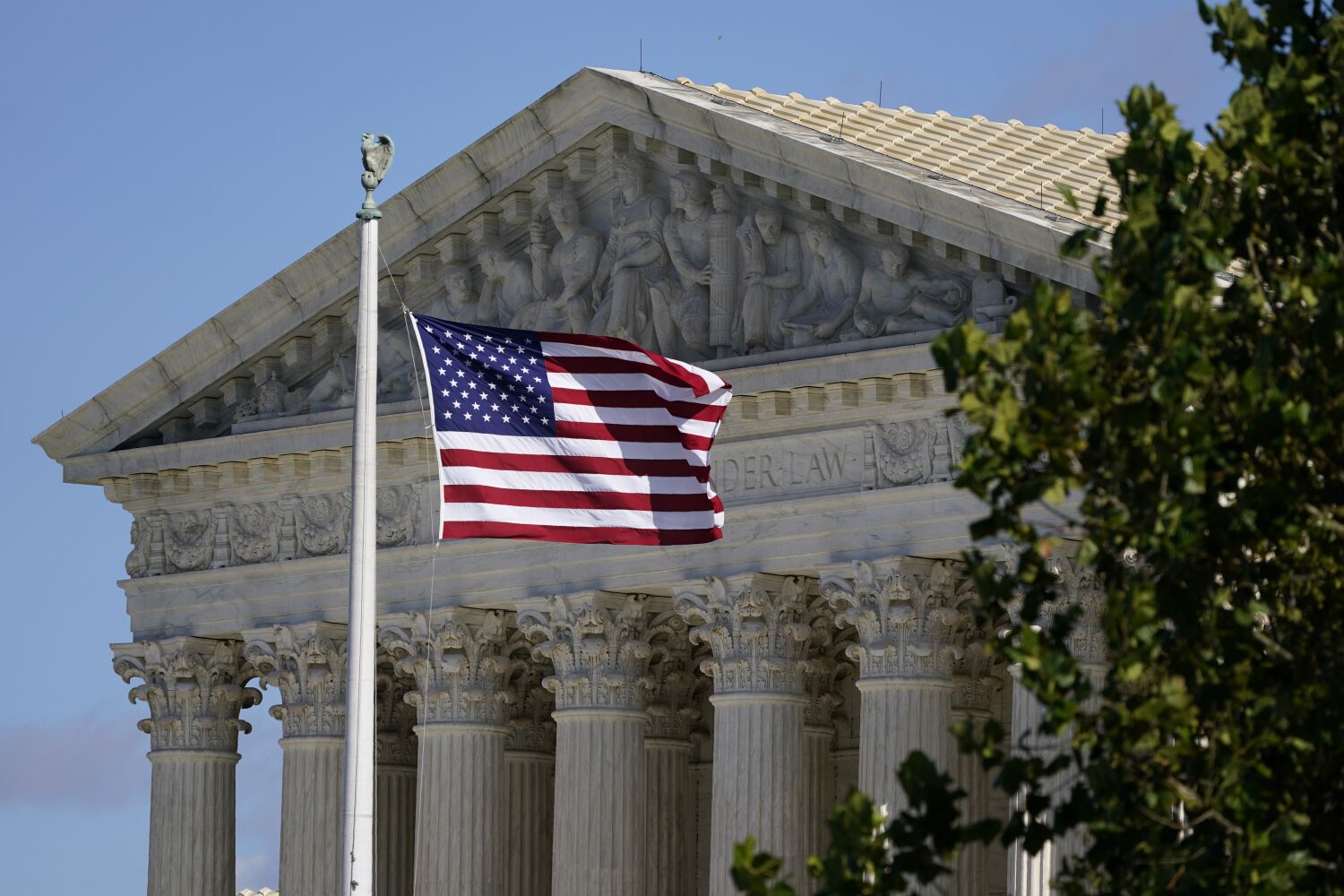Supreme Court casts more doubt on Biden’s plan to forgive student loans


The Supreme Court’s conservatives gave a sharply critical hearing Tuesday to President Biden’s plan to forgive more than $400 billion in student loans, arguing that only Congress could approve such a large amount of federal spending.
“We are talking about a half-trillion dollars and 43 million Americans,” Chief Justice John G. Roberts Jr. told Solicitor Gen. Elizabeth Prelogar, who was defending the administration. “We take separation of powers very seriously,” he said, yet Congress had not approved this spending. “And you say there is no role for us to play,” he added.
The comments were echoed by his conservative colleagues, most of whom sounded ready to rule against the administration.
In December, the justices voted to keep in place lower court orders that blocked Biden’s plan from taking effect.
In the first of two cases to be heard on Tuesday, lawyers for six Republican-led states argued Biden had overstepped his authority by proposing to cancel tens of millions of student loans as a response to the COVID-19 pandemic.
Justice Brett M. Kavanaugh said he was skeptical of allowing the executive branch to create “a massive new program” based on a vaguely worded old law.
He was referring to a 2003 law adopted at the time of the Iraq war allowing the Education secretary to “modify or waive” any student aid program “in connection with a war or other military operation or national emergency.”
But before the justices can rule on Biden’s plan, they must first decide whether anyone has legal standing to challenge it in court. Typically that means some person or entity, including states, must show they are or will be harmed by a law or government action.
Taxpayers do not have standing to sue to stop the government from spending money, and it’s not clear if anyone could show they will be hurt if the government forgives another person’s loan.
The solicitor general’s most effective argument was to contend none of the states had legal standing. In that case, she said, the court has no authority to decide their lawsuits.
Missouri argued its state higher-education agency will lose money if it has fewer student loans to process. Several other Republican-led states said they may lose tax revenue if loans were wiped out. And two Texas residents who did not qualify for relief under Biden’s plan say they lost the procedural right to file an objection with the Education Department.
Justice Amy Coney Barrett asked several questions about the state’s standing, but she was the only one of the conservatives who sounded uncertain on that issue.
Congress in 2021 refused to erase some loans, but the administration said last year it already had such authority under the 2003 measure. The aim of the law was to ensure that “affected individuals are not placed in a worse position financially.”
The Trump administration suspended repayments on federal student loans shortly after the pandemic was declared, and those payments have not resumed under Biden.
Last year, Biden Education Secretary Miguel Cardona decided that borrowers would be in a worse position if they had to resume their monthly payments, and he proposed forgiving loans of up to $10,000 for eligible borrowers with a federal adjusted gross income below $125,000 or $250,000 if they filed jointly.
Those who received Pell Grants tend to have lower incomes, so they could have up to $20,000 forgiven under the plan.
The government says at least 40 million borrowers may be eligible for relief from some or all of their loans.
Nebraska’s lawyers called the focus on the pandemic “a pretext for the president to fulfill his campaign promise” to relieve student debt. Besides Missouri, also joining the suit were Arkansas, Kansas, Iowa and South Carolina.
Share this news on your Fb,Twitter and Whatsapp
Times News Network:Latest News Headlines
Times News Network||Health||New York||USA News||Technology||World News